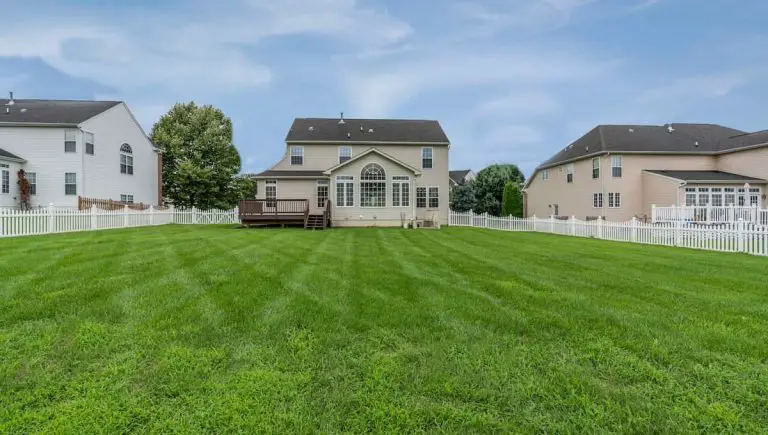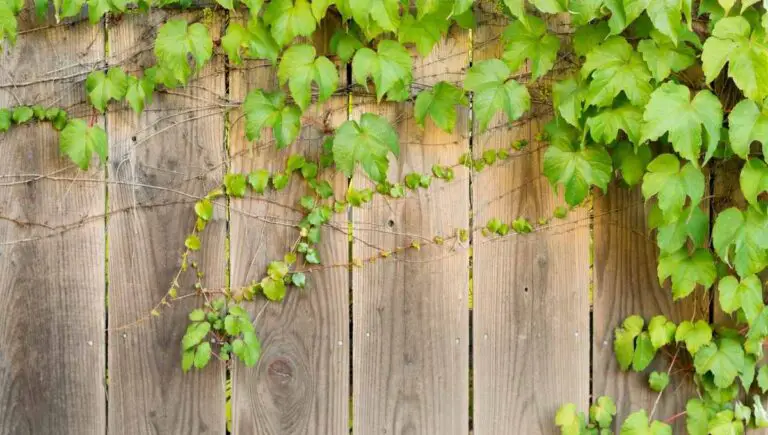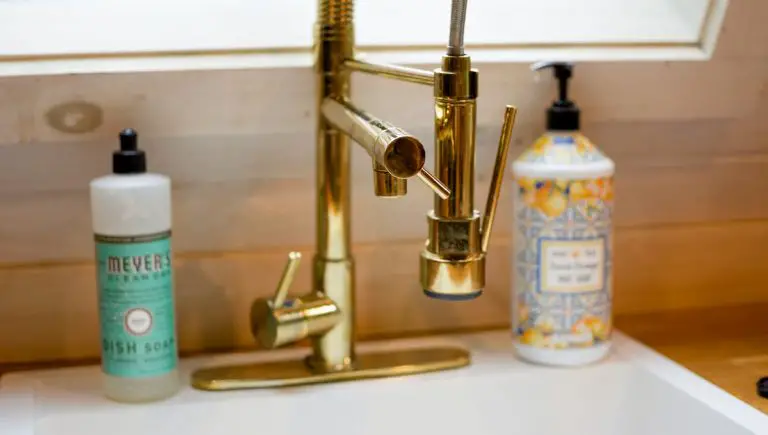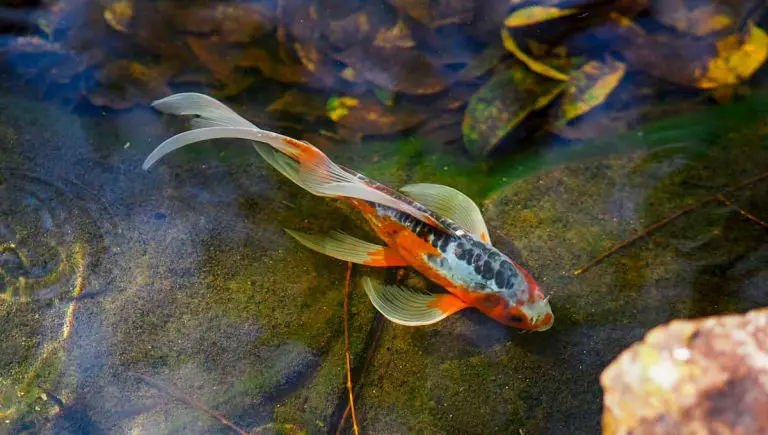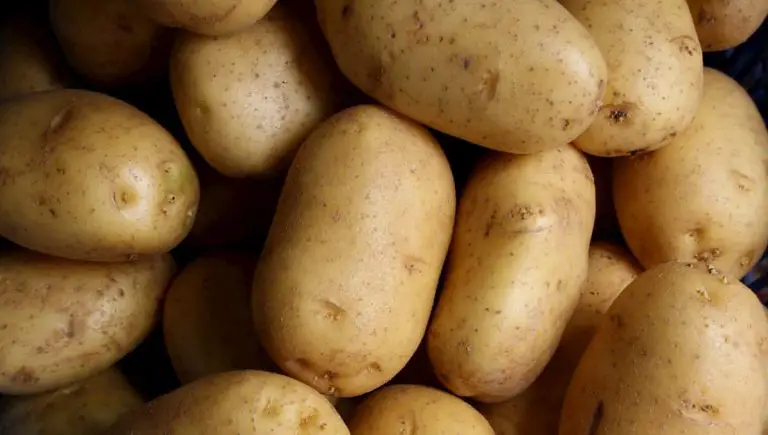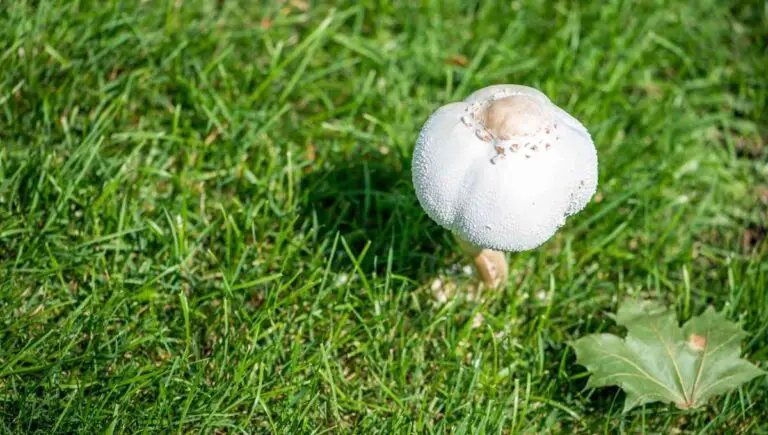What Kills Weeds Permanently So They Never Come Back?
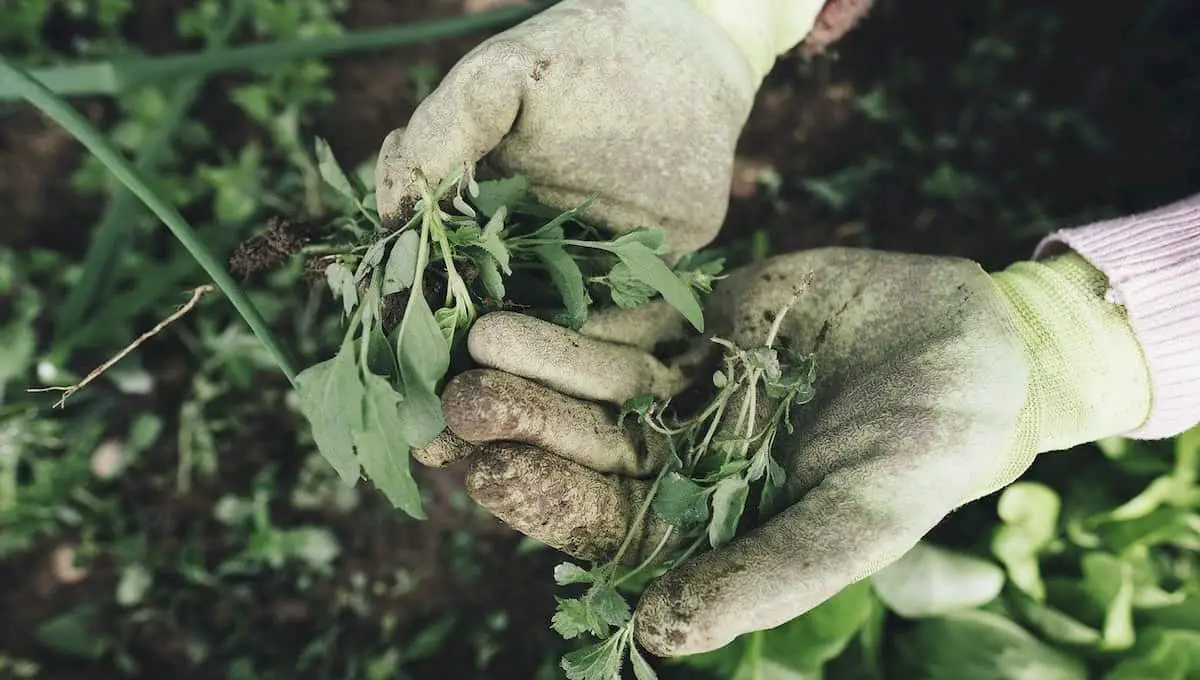
A healthy balanced soil is essential for growth and maintenance of a lush landscape. However, with healthy soil also comes the growth of weeds. Many homeowners deal with persistent weeds on their property on a regular basis. It’s understandable that everyone wants to find ways on how to get rid of them or know what kills weeds permanently.
In general, attacking and destroying the root of the plant is what kills weeds permanently. Using both natural and man-made weed killers like vinegar or Compare-N-Save work well to kill weeds on the surface. If the root of the plant survives however, the weeds will eventually grow back.
If you want to learn how to go about permanently getting rid of weeds, and how to prevent them from popping up in the first place, we’ve got you covered. In the sections below we’ll cover everything you need to know along with tips and advice on how to beat this pesky plant for good.
Here’s a Quick Pro Tip!
Getting rid of weeds doesn’t have to be complicated or expensive. Your common over the counter vinegar, or the more concentrated home and garden Calyptus 45% Pure Super Concentrated Vinegar will do the trick quickly and affordably.
Why Weeds Keep Coming Back
To better understand weed problems and find the best solution to get rid of them, you also have to know several reasons why these stubborn pesky plants keep coming back to your yard. The most common reasons include:
- Incomplete removal of weeds – ideally they should be removed from the roots. If you only touch the crown, the leftover roots can still support growth and make the weeds return.
- You live near the woods where weeds are prolific and the wind or birds just carry their seeds to your area and other nearby residential properties.
- Having a lawn that is not so dense; as a result, there are empty spots that can invite weeds to grow and spread.
Nature has a way of letting weeds pop up where they shouldn’t. If left unattended, these weeds can compete for nutrients from plants in your garden. If you have been dealing with weeds on your property without much success, you’re not alone.
There are ways to address weed problems; these will involve the use of cheap alternatives to commercial herbicides and natural growth control and prevention.
What is the Best Way to Kill Weeds Permanently?
There are several products sold in your local home garden store that can tackle weeds in your garden. However, many of these products come with chemicals that may harm not only you or your family, but also pets, and even the environment. For this reason, more and more people want to go for organic solutions.
Natural solutions to weed problems are generally safer to use, without the potential of harming your family and pets, and the environment. One way to naturally keep weeds from growing in your garden is mulching your garden with newspaper. This should choke the weeds and discourage their growth, and at the same time, keeps your soil fertile.
Other natural solutions involve the use of household products that have been shown to be effective herbicides. Vinegar and salt, which are easy to find and cheap, are some of the items that gardeners have used to combat weeds successfully.
These solutions are usually mixed with water and then sprayed over the area with the unwanted grass and weeds. More about these homemade weed solutions are discussed below.
You might also enjoy our post on Can Plants Touch an Electric Fence?
What Kills Weeds Permanently and Naturally?
If you don’t like to use commercial herbicides loaded with harmful chemicals, you’d immediately want to find out “What is a natural way to kill weeds fast?” In this section, we will discuss how vinegar, salt, have helped eliminate weeds in the garden.
Does Vinegar Kill Weeds Permanently?
While searching for what kills grass and weeds naturally, you may have discovered vinegar as one of the most popular solutions. Is it effective? There has been evidence showing the efficacy of vinegar in ridding of weeds, which should help you have a weed-free garden.
In this study by the University of Maryland, it showed how vinegar or acetic acid can be a great alternative to the widely popular and best-selling herbicide, glyphosate.
However, it should be noted that the vinegar used in the study is a horticultural or herbicidal vinegar, which has an acetic acid concentration of 20% (as opposed to the 5% found in regular household vinegar or the 7% in pickling vinegar).
That said, the use of such horticultural vinegar requires one to register the product before use. It is a highly dangerous chemical and proper precautions need to be observed when using it as an herbicide.
However, that doesn’t mean you can’t use the vinegar in your pantry to combat weeds. Several home experiments by gardeners have been done to show how effective regular vinegar can still be. You can check out the video below to see what vinegar can do to weeds.
Classified as a contact herbicide, vinegar can kill weeds and other unwanted plants by burning off or drying out foliage above the ground. That said, it works on weed seedlings or those that don’t have deep roots. This also means vinegar may not work on larger weeds or those that are deeply rooted.
How to Use Vinegar To Kill Weeds
To make your own vinegar herbicide, you just need two cups of vinegar and 1/2 tablespoon of dish detergent. You may use 5% vinegar but it’s better if you opt for a higher concentration, which is a 7% pickling vinegar. This 4L Heinz Pickling Vinegar would be a good product to keep for your garden needs. Remember to stay away from horticultural vinegar, unless you are registered to use it.
Simply mix the ingredients and place them in a spray bottle. Spot spray in areas where you don’t want the weeds to grow, still making sure that you don’t spray surrounding plants.
Quick Tips When Using Vinegar As Herbicide
Below are some tips to remember when using vinegar as a weed killer:
- Choose a dish soap brand with the “detergent” word stated on the label and not ones that are labeled “anti-bacterial”
- Remember that vinegar as herbicide is non-selective, so it kills whatever it comes in contact with, even healthy vegetation you want to keep
- Vinegar is not a systemic weed killer, but rather a contact herbicide; it will not take the chemicals down to the roots to kill off the weeds.
- The best time to apply this herbicide is during a hot day.
- Older and established weeds require reapplication of herbicide to keep it from coming back. Overtime, with repeated application, the weeds will weaken and eventually die. This strategy is also helpful when killing large patches of weeds.
- Vinegar can be highly effective against smaller weeds like young crabgrass and dandelion sprouts, requiring only one treatment.
- Do not drench the weeds with the herbicide. Only spray enough to wet the leaves.
- Don’t forget to use protective gear like gloves and goggles when spraying.
Does Vinegar Epsom Salt and Dawn Dish Soap Really Kill Weeds?
Some home gardeners advocate using Epsom salt mixed with Dawn dish soap to kill weeds. This can be a potent combination, which is why you only need to apply it on areas where you want to permanently inhibit plant growth, such as the patio or walkway.
But is Epsom salt really effective or does it really have to be a specific brand of dish soap? Epsom salt is also called magnesium sulfate and is historically used as a fertilizer. Diluted with water, the mixture is sprayed on to plants to make up for nutrient deficiency.
Epsom salt is also excellent for flowering plants plus it enhances their green foliage. That said, Epsom salt does not belong to the herbicide category. However, table salt does – it’s much cheaper, readily available, and it works against weeds.
Salt is often used along with vinegar and dish soap (any brand) as a herbicidal concoction, with the following ratio: 1 gallon white vinegar, 1 cup salt and 1 tablespoon liquid dish soap. In this mixture, salt and vinegar dehydrate the grass and weeds while the dish soap acts as the surfactant, to help salt and vinegar stick to the surface of the leaves instead of being absorbed.
When used at the right timing, they can be an excellent herbicide. It’s best to apply this homemade spray during a hot day; in a matter of hours, you should see the weeds wither and die.
Using Vinegar in Strictly No-Living Thing Areas
There are times when you have just decided that you don’t want any kind of vegetation to grow in a certain spot in your property. Vinegar does just that. If you want driveways and walkways to be free from weeds, you can still use your homemade vinegar solution.
To do this, mix two cups of regular table salt with a gallon of white vinegar. Make sure to choose a container that is more than one-gallon to make room for your salt. Close the container and shake until the salt is dissolved. After which, add 1 teaspoon of salt in your dishwashing soap.
Pour your solution into a garden sprayer and apply to weeds or grass during a hot, dry day. Note that you won’t see permanent results soon after application. It could take several applications but the salt should “sterilize” the ground to make it unsuitable for any plant growth.
You might also enjoy our post on How to Stop Neighbors Vines From Growing on My Fence
Will Bleach Kill Weeds Permanently?
Bleach is also included as one of the best home remedies for weeds in your garden. Bleach raises the soil’s pH level, making it alkaline, which will discourage the growth of most vegetation.
Out of all the homemade solutions mentioned above, however, bleach is the least safe of them. It is just as powerful as an herbicide as it is a household cleanser, so do exercise caution when using them. Bleach a household product not to be messed with, especially if you have plants that you want to grow nearby.
How to Use Bleach as a Weed Killer
- Put on some old clothes, as well as protective gear like these Bamboo Garden Gloves, to avoid irritation in case there’s an accidental skin contact with bleach.
- Pour one cup of undiluted bleach on the affected area.
- Wait one to three days or once you see that the grass has turned brown; start pulling out the dead grass
- Run water along the area to leach the bleach, which is important if you plant to grow grass or plants in the same area.
Precautions When Using Bleach
Consider the following precautions when using bleach as an herbicide:
- Don’t use too much; just enough to wet the weeds.
- Don’t allow pets or kids near the bleached area until it’s completely dry
- Be careful when spraying near plants that you intend to grow.
- Avoid using bleach at all costs when thinking about removing weeds near edible crops.
- Don’t spray bleach when weeds are near water sources
- Avoid using bleach when rain is forecast
- More importantly, do not mix bleach with other chemicals to come up with your own concoction
Is it Better to Pull Weeds or Spray Them?
Pulling weeds and spraying them with herbicides are two common methods of getting rid of weeds. Timing is also important and the best time to pull out weeds is when the soil is moist and damp, such as after watering or after a rain. Doing so will make the weeds come off easily, including their roots.
On the other hand, pulling weeds when the soil is dry will only let you take out the leaves or the weeds above ground, neglecting the roots. In doing so, this will just allow the roots to grow back.
Meanwhile, killing large patches of weeds naturally using this method would be a different story. It would take you much time to pull at them one by one. In this case, spraying with your homemade herbicides can help as the grass will die within 24 hours. They should then be removed using your garden tools.
In patios and walkways, use an effective garden tool such as Fiskars 4-Claw Weeder, which should remove your weeds from crevices. A scuffle hoe can also be handy to cut off weeds from the crown. Repeatedly doing this will result in the weeds eventually dying out.
How Do You Stop Weeds From Growing Back?
This is just one of the popular questions from home gardeners who want to get rid of weeds. The bad news is that you can’t win the battle against weeds. They are persistent and they will always grow back. However, the good news is that there are several ways you can control and prevent their growth in addition to the homemade sprays you have.
Install Landscape Fabric.
Having a landscape fabric, such as DeWitt 6 Feet by 250 Sunbelt Ground Cover, should prevent the growth of weeds in the first place as it serves as a physical barrier on the soil. Still, it allows water, air, and nutrients to penetrate to help your plants grow. When you use a landscape fabric, make sure to use drip irrigation to water the plants through the roots.
Landscape fabric is one natural method of weed control that can promise long-lasting results. For several years, you can have a weed-free garden because of how it works to hinder weed growth while allowing your plants to thrive.
To use this method, spread the fabric over the bare ground and around the trees, making sure to overlap several inches at the seams. Secure the fabric with U-shaped metal pins or staples then cover the fabric with one to two inches of mulch.
Watch this quick video on how you can set up a landscape fabric.
Cover With Mulch
Another way to control the growth of weeds on your flower beds or vegetation is to fill it with mulch. Weeds grow quickly on open grounds if left unattended. Mulching the selected area will block out sunlight, which will then hinder weed growth – mostly the annual ones.
You can choose from shredded or chipped bark as your mulch of choice in larger areas, like around shrubs or between trees. They don’t decompose rapidly and won’t easily be blown by the wind. If you want to mulch your path, a thick layer of sawdust should do the job since it depletes nitrogen in soil.
Another excellent mulch to use is grass clippings. They’re readily available and it’s a good idea to have them since overtime they decompose and act as a natural fertilizer for your plants. Occasionally, use grass clippings as mulch to prevent weed growth. At the same time, these clippings can be perfect for vegetables in your garden that need nitrogen.
When mulching, clear the area of visible weeds and then place mulch up to four inches deep. When placing around trees, keep the mulch a few inches away from stems and trunks to prevent disease.
Conclusion
Without a doubt, weeds are a nuisance. While there may be no one ultimate solution to weed problems, you can reduce the time and effort in fighting them by choosing any of the abovementioned control strategies and sticking to what works for you.
Homemade vinegar with salt mixture have shown promise in killing weeds fast, but that alone won’t be enough. Regular tending to your garden beds, spot spraying, and pulling little weeds from time to time should help you control and prevent their growth and recurrence.

